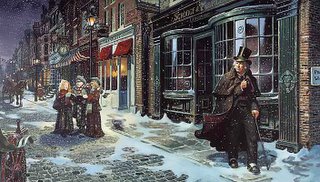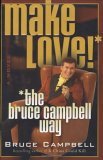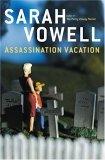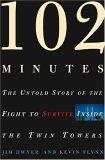The (Incomplete) Iraq / Afghan War Reading ReviewIt might be a bit of hubris to offer up a review for this many books in one fell swoop. Indeed given the sheer volume of publications on the Iraq and Afghan conflicts, particularly in the last year, any type of comprehensive review becomes... well, fairly subjective by sheer necessity.
My list is no exception.
The books below were selected for a number of different reasons (in one case because the cover just looked so damn interesting). I don't pretend that they cover the complete gamut of available books on the subject, or that they cover the complete range of political viewpoints on the war. My selections were driven by a long-standing interest in history, politics, and current events; a belief in humanity, previous good experiences with several authors, recommendations from various sources and by following my nose and my instincts on what looked worth cracking open and spending my time. I've dumped out of this review almost as many books as are included within it, mainly because they didn't impress in content or in writing quality, or because the books selected did a better job of telling that particular story. You have to draw the line somewhere, or we'll be here all day.
I don't expect people to agree with me on either my selections or my opinion - hey, it's a book review. You buy your ticket, you take your ride.
The books selected for the review were deliberately selected to cover a range of topical areas - from the battlefields to the backrooms of the White House, to the slums of Baghdad. I've always been a believer that proponents of a black and white worldview were trying to sell me something...and I generally like to make up my own mind on most things (except when my wife makes up my mind for me...). Garnering a range of information sources is the best way to develop some level of understanding but I don't pretend that I can ever know the real story, just a reflection of it.

Generally the best place to start is at the beginning, so for a good background source I recommend reading Rick Atkinson's excellent account of the first Gulf War,
Crusade (reviewed previously
here). It's useful in providing some context for the events today and, despite the many people wanting to paint the current conflict as one uniquely and entirely driven by George W. Bush, there are a number of forces at work and none of them are either simplistic or operate in a vacuum.
For a unique and deeply fascinating look at the backdrop behind the decision to go to war in Iraq, Bob Woodward's book
Plan of Attack provides a terrific "fly-on-the-wall" look at the decision-making process within the Bush White House. Hindsight is always twenty-twenty but even with this in consideration a disturbing pattern seems evident within the decision-making process of the administration that lends credence to the questioning of some of the elements behind the decision to go to war, particularly in the swift manifestation of that decision in the wake of 9/11 and the deliberate effort to interpret sometimes flimsy evidence as a smoking gun.

Woodward makes the most of his access and bases his account on exhaustive research and more than 75 interviews with high ranking officials including George W. Bush, Colin Powell and others. Despite the occasional misstep and a fairly dry and turgid writing style, the account is comprehensive and compelling.
Also of note is Richard A. Clarke's involving narrative
Against All Enemies: Inside America's War on Terror which touches briefly on similar issues (namely the swift determination of the administration to war on Iraq following 9/11 and the efforts to link Saddam to the 9/11 hijackers. Clarke's book offers an insiders look at the shadowy War on Terror and paints a disturbing picture of the early Bush White House as blithly unappreciative of the potential dangers of Al Quada and coldly manipulative of it as an opportunity in the aftermath of 9/11.

Less helpful is Clarke's failure in the book to cast a real light on the failings of the Clinton administration in recognizing the danger and the evolving threat of terrorism within the global community. You can cite the domestic political issues faced by Clinton as much as you want as an excuse for distraction, but the harsh reality is that his administration (though it did more than anyone previously) failed miserably in assessing and managing the threat. But, as was noted previously, hindsight is always twenty-twenty...
Lastly
Imperial Hubris, originally published anonymously but later revealed to be written by Michael Scheuer, a CIA Middle-East expert, pulls no punches in lambasting the current public perception of the issues, heaping significant scorn on Bush's reasoning behind the war on terror and on the invasion of Iraq, calling for instead a much geographically wider, much more targeted effort (yes, using substantial military force where necessary) to defeat the Islamists and to reduce the political and strategic environment that lends them support.
Imperial Hubris is a polemic, and not an altogether comfortable one, but one that seems intent on skewering all sides of the debate and forcing as many sacred cows as possible to be tossed out.

With the advent of the war against Al Quada and the Taliban in Afghanistan, a good background primer on the region is an absolute necessity. I heartily recommend Peter Hopkirk's
The Great Game: The Struggle for Empire in Central Asia, and
Tournament of Shadows: The Great Game and the Race for Empire in Central Asia by Karl Ernest Meyer. These two works will give you the historical background. Then go and read some Kipling for the flavor...
For a more contemporary look at Afghanistan, the rise of Al Quada and Bin Ladin, crack open Steve Coll's superlative Pulitzer-Prize winning
Ghost Wars: The Secret History of the CIA, Afghanistan, and Bin Laden, from the Soviet Invasion to September 10, 2001 (
detailed review can be found here).

I also recommend
Charlie Wilson's War by George Crile (
also reviewed here). Both books are characterized by strong research, excellent writing and a highly involving look at the last thirty-years of Afghan history and its bitter aftermath.
The war against the Taliban in Afghanistan was an extraordinary one, by any definition, made moreso by the relative dearth of U.S. forces on the ground for much of the conflict. U.S. Special Forces played a key role in the Northern Alliance's overthrow of the Taliban regime and the relatively swift victory that ensued, bringing their battlefield expertise, communications, language, organizational skills, and their innovative, evolving warfare techniques to bear.
Linda Robinson's
Masters of Chaos: The Secret History of the Special Forces takes a
careful look at the activities of the U.S. Special Forces in both Afghanistan and Iraq, although the book is in actuality an overview of their activities across other operational theaters such as Panama, Kosovo, Somolia, and more.

Robinson pulls together a solid account of the Special Forces, weaving together interviews with more than 30 special forces operators and delving into and contrasting the attitudes and approaches found in the Special Forces with the mainstream military forces.
By contrast
Not a Good Day to Die: The Untold Story of Operation Anaconda by Sean Naylor may have your gnashing your teeth in frustration as you read this taut, well-written account of a U.S. operation in the Shahikot mountains of south-east Afghanistan. Mark Bowden's
Black Hawk Down has helped drive a literary resurgence in intricate, well-researched and deeply involving accounts of battles and Not a Good Day to Die is written in a similar vein.

It is a highly engrossing, moving and involving account of Operation Anaconda, a large strike against a Taliban/Al Quada stronghold that goes dramatically wrong. Naylor's book gives a comprehensive account of how, despite all the technology and the firepower, planning can go seriously awry and how, although new technology can create more and better battlefield intelligence, the same technologies can result in information overload, coommunications friction and serious command-and-control issues.
The War in Iraq has been, by contrast, very different from Afghanistan.
John Keegan's book
The Iraq War provides readers with a sound strategic and diplomatic overview of the events leading up to war, particularly in helping readers understand the context of the war, the process of the diplomatic dance and the directions of the major players.

Keegan doesn't treat the "march to war" as a process that occurs in isolation, but does a good job of drawing in the many and varied elements that contributed, not the least of which was Saddam's horrific record of human rights abuses, his wars with Iran, Kuwait and the Kurds and his overall history of belligerence. Keegan, one of the world's foremost military historians and the author of such works as
Intelligence in War and the superlative
The Face of Battle, has penned a dry, somewhat pedestrian work but one that provides a good and exhaustive viewpoint that is free of much of the overt political bile that mars some of the U.S. publications.
Beyond Keegan's contextual work, there are a wide range of publications that cover the actual events of the war itself. The use of "embedded" journalists provided a number of writers with the opportunity to experience the war in a way quite frankly unprecedented since World War II and at a level that lends itself to often highly personal accounts, albeit ones that are sometimes skewed through the narrow and oft-times constrained perspective of the particular journalist.
One of the first books released after the conclusion of the war (the overt formal hostilities at any rate) was
The March Up: Taking Baghdad with the 1st Marine Division by Ray Smith and Bing West. Smith and West are both former Marines who traveled with the 1st Marine Division, at the "point of the spear", from Kuwait to Baghdad. Smith and West do an solid job chronicling the dangers and uncertainties the Marine's faced on the march however the book suffers from a decidely uneven editing job at points that detracts from the overall narrative. West and Smith offer little commentary on the political or diplomatic particulars of the war but offer an honest and revealing look at the men placed in harm's way.

Strangely enough, while reading
The March Up, I was struck at one point with a startling and eerie sense of recognition as the authors described a skirmish that I had listened to live, courtesy of CNN and my local radio station, while driving to work one day. The contrast was jarring, disturbing and unnerving, listening to a war unfold within the banality of the everyday.
There have been a wide variety of publications being penned by the various embedded journalists but one of the better works was
Generation Kill: Devil Dogs, Iceman, Captain America, and the New Face of American War by Evan Wright. Wright, a writer for, of all publications, Rolling Stone Magazine, was also embedded with the Marines, specifically with the First Reconnaissance Battalion, the leading unit of the invasion (nicknamed the "First Suicide Battalion" for their position ahead of other U.S. Forces and for their role in racing ahead to trigger suspected ambushes).
 Generation Kill
Generation Kill has energy, verve and above all a taut sense of reality caught up within its pages. Wright pulls few punches, portraying the Marines, warts and all, delving into their attitudes and opinions on the war, their fears and hopes and personalities. As for the war itself, Wright builds a vivid picture of the mixed bag that was Iraq - the strange melange of little and futile organized resistance interspersed with vicious and intense Fedayeen attacks, and the horrific ongoing accidents of small groups of Iraqi civilians wandering into the crossfire. Brutally honest, involving and at times wrenching,
Generation Kill is an well-written, highly charged piece of work.
In the Company of Soldiers : A Chronicle of Combat by Rick Atkinson is another example of embedded coverage. In this case Atkinson, the author of arguably the best account of the First Gulf War,
Crusade, and of
An Army at Dawn, was placed with the 101st Airborne Division commanded by the larger-than-life Major General David Petraeus.
In the Company of Soldiers spends far less time looking at the war as a whole, as with his previous work, and little time on the individual soldiers on the battlefield.

Atkinson focuses the work on the senior commanders, looking at the logistics, planning, decision-making, communciation and adaptability of the 101st's command structure. Petraeus comes off as a caring, charismatic and intensely competitive leader and the overall image of the U.S. field commanders is one of high professionalism although there is a sense that Atkinson might have been better served in spending an equivalent amount of time with the men in the field. As a sketch of the decision-making and leadership qualities, it is a solid, but unexciting piece of work albeit not as encompassing as
Crusade nor as far-reaching as
An Army at Dawn.
Thunder Run by contrast is a pure battlefield account, and possibly one of the best written since
Black Hawk Down.
Thunder Run is a rousing and detailed account of the armored strike on Baghdad, following the 2nd Brigade of the 3rd Infantry Division, the Spartan Brigade. A "thunder run" is an rapid, fast-moving armored attack, designed to punch through enemy defenses in a highly aggressive manner. Written by David Zucchino,
Thunder Run offers an intense front-seat view of modern armor at war. The traditional strategic doctrines governing the use of armor and the "thunder runs" were, ironically enough, effectively turned on their heads when carried out in Iraq.

Zucchino pulls out subtle details on the men, the machines and the realities of war, capturing both the turmoil and the tragedy in equal measures. He also serves to shed light on one of the more erroneously reported and infamous incidents of the war - the shelling of the Palestine Hotel - offering a through after-action report with a number of witnesses to the incident, laying to rest the reports of a deliberate assault on the media. Here's a quick excerpt:
"The division had just completed the fastest sustained combat ground march in American military history - 704 kilometers in just over two weeks and 300 kilometers in one twenty-four hour sprint. It was April 4, 2003 and Jason Diaz from the Bronx - budding army lifer, husband of Monique, father of little Alondra and the twins, Alexandra and Anthony - was weary and filthy and longing to go home. But now, on this cold starry night, he was obliged to demand even more from his exhausted crew and his overextended tank. He had just been ordered to take them straight into Baghdad."Thunder Run is, quite bluntly, a terrific read.
Beyond the battlefield accounts and the "embeds" are another set of stories penned by a handful of reporters who remained behind in Baghdad after the war began.
The Fall of Baghdad by John Lee Anderson is a highly personal, very evocative, gritty and well-written account of Baghdad before, during and immediately after the war. Anderson draws a careful and nuanced account of his days in Baghdad, sketching out the often narrow path that individual Iraqi's have had to tread between a dangerous and rampant advancing superpower and the ruthless internal security apparatus of the Saddam and the Baathists. Through experience, interviews and trenchent observation, Anderson has built an effective and gripping picture of life in the final days of Baghdad, putting an all-too-human face on the people at the other end of the rifle sight.

By the time you finish
The Fall of Baghdad, you are left with a decidely mixed taste in your mouth regarding the invasion - it rid Iraq and the world of Saddam and the apparatus that supported him - but the question of what impact the occupation will have for the peoples of Iraq is decidely uncertain. Anderson's book is not an overtly political work, it is not an anti-war or pro-war polemic, but rather concerns itself with opening a window on the conditions, thoughts, hopes and fears of the people of Iraq. Some of the messages are unpleasant and unsettling, but they do need to be heard and Anderson's work is a well-written and rich first step towards a better understanding of the situation.
Naked in Baghdad by Anne Garrels is another solid first-person account of Baghdad at war. Anne Garrels was the NPR correspondent in Baghdad, gamely sticking to her reportage throughout the war, one of only 16 non-embedded reporters who stayed in the capital during the war. Based out of the Palestine Hotel, she dodged her Iraqi minders, cajoled the bureaucracy, scrounged supplies, and roamed the city trying to pull together stories in the face of U.S. bombing and missle strikes and a relentless Iraqi propaganda machine.

Garrels work lacks the depth of content and insight that laces through Anderson's account but her book remains a vivid and highly readable account. Interestingly enough, it too touches on the U.S. shelling of the Palestine Hotel - from the receiving end of the shells. Overall
Naked in Baghdad is a fascinating personal account but at the end of the day is more of a war diary.
Overall the books covered in this brief and incomplete reader review are all well worth your time and will help you gain a better comprehension of the events that have occurred and are daily unfolding. The one element I would recommend is that you make an effort to read outside of your comfort zone, whatever side of the political fence you may find yourself on.
For more on Iraq I recommend checking out some of the many first-hand accounts of the warzone. Here are a few notable ones:
Back to Iraq by Christopher Allbritten is a weblog started by a freelance journalist who went "stumbling around Iraqi Kurdistan" in 2002 and again in 2003 during the war. He is now based in Baghdad covering the post-war events for Time Magazine. He offers a solid and involving look at the tensions of living and working in Baghdad, and some fascinating insights into the evolving Iraqi political situation.
Michael Yon's Online Magazine site is another freelance independent reporter embedded with the U.S. Forces in Iraq. Yon's work is tense, tight and highly readable, providing a window into the lives of the men on the ground and the war they face that goes far beynd the regular media.
Also notable is
Kevin Sites blog of his activities in the warzone.
For other miitary bloggers of note - check out
The Mudville Gazette, which provides an exhaustive and comprehensive mil-blogger list,
Blackfive,
CounterColumn , and
The Indepundit (formerly Lt. Smash when he was in Iraq...).
Beyond the mil-bloggers, check out
Riverbend,
Healing Iraq, and lastly
Dear Raed (the famous Iraqi blogger who blogged from Baghdad throughout the war,. His site is now in hiatus).
If you are interested in more news from Iraq, check out
Iraq Daily .
All of the above sites come with fairly extensive links to additional sites, so please feel free to browse (hey, its the world wide web ain't it?) and surf. There are some fascinating sites out there and some terrific writing hidden away online in obscure little corners.
Lao Tzu once wrote that the Tao which we can perceive is never the true Tao. I fully expect that people reading this review list from all sides of the political spectrum will say "yes but he didn't read
this..." or, more bluntly "this guys is full of sh*t..." and you know what...I am. You may read all of the books reviewed here and totally disagree, you may think the selections from this list leave off some spectacular works and include some ridiculous ones...Great! Go crack open a book and read one! Send me a recommendation! Write your own take on things! A little knowledge is a dangerous thing, before you know it a damn civil discussion might have broken out and who knows, dare I say it - some ideas might be exchanged, despite the differences in opinions.
One reason I decided to post this review was the sheer level of acrimony and posturing I've seen demonstrated on the web from all sides of the political spectrum. They are less interested in building up their understanding of the situation, the issues and the moral choices, and more interested in tearing down and using the events for gain in their arguments. I'll be blunt - I have no idea who's right and who's wrong and on the issues regarding the war, I'm particularly torn, galloping madly off in all directions at once, idealism, pragmatism, hope and cynicism, all pushing and pulling.... Reading these works is my effort to get a handle on the ideas being tossed about, an anchor of sorts amid the rhetoric and idiocy.
I hope in the end you check out some of the books.
Thanks for visiting BookLinker. I hope you've enjoyed the post. Please feel free to link and add comments...and if you can please make an effort to support the site by clicking on some ads or making your holiday purchases from Amazon here.
Bye.

























